So much of life in Palestine, as it turns out, depends on teenagers in army uniforms.
Chloé Benoist
For the past few months, I’ve been alternating between scrolling in shock through the apocalypse unfolding in real time in Palestine, and parsing through old messages, posts, and photos from a time when that part of the world felt like home.
Suspended between the past and the present in a daze, I try to perform the role of functioning employee, responsible flatmate, or supportive friend here in London, but my mind is wholly elsewhere. I draw an elongated triangle on a paper napkin in an approximation of historical Palestine to show a dinner date where the Gaza Strip is compared to the West Bank. I tell my grandmother over Christmas about how the Church of Saint Porphyrius, among the oldest in the world, was bombed by Israeli forces. I find every excuse to bring up how my friend’s brother has been thrown into prison without trial or charges. I exchange rambling voice notes with friends I met in Palestine, many of whom have ended up strewn across the far-flung corners of this planet. Our heartbreak connects us like a spider’s web.
The Israeli occupation’s callousness is more nakedly obvious than it has ever been, and its justifications feel surreal. (Look at this hospital calendar and these metal weapons stored next to a magnetic MRI machine! It’s okay if Palestinian men are made to line up blindfolded in their underwear; winters are warm in the Middle East! Let’s refer to the mystery perpetrator of a drone attack that killed a Hamas leader in Beirut as “whoever did this”!) And yet we continue to see political leaders and news outlets in the West treat Israel as a reasonable actor – its excuses plausible, its intent trustworthy.
The world watches Gaza through the eyes of Palestinian journalists, only to see them die. Save for a lone incursion by CNN correspondent Clarissa Ward in December, no foreign journalists have been allowed to see the carnage inside Gaza unless embedded with the Israeli army. Meanwhile, western journalism continues, for the most part, to feel beholden to the injunction of objectivity, of appearing impartial even when the cognitive dissonance defies belief. Somehow, to be moved to tears or anger by the status quo is seen as more disruptive than the tacit belief that some war crimes are more acceptable than others, so long as they are committed by state actors.
This feels maddening, yet deeply familiar to me; it’s one of the things that has made me slowly retreat from the industry in recent years.
As someone used to writing about what happens to other people, I’m not comfortable with the first person. Yet, as we see Palestinian colleagues risking their lives to bear witness to the devastation they are enduring, I do not wish to speak over them, but to add my voice to the chorus. So let me recount what I experienced as a foreign journalist working for a local news outlet in the occupied West Bank for more than two years; how it felt to live where the aberrant was routine, like Alice in Wonderland being told: “We’re all mad here.”
Death by bureaucracy
I was born in France, but grew up between the United States and Parisian suburbia, where I attended an international school — a sheltered environment that nonetheless exposed me to many different points of view.
In 2003, as the US was gearing up to invade Iraq, I found myself arguing with an American friend in the cafeteria about whether Saddam Hussein had WMDs. We were barely 15, but it struck me how vastly different our perceptions were, depending on which country’s news programs our parents were watching at home. I’d always wanted to be a journalist, but this moment first made me wonder how stories change depending on who is telling them — especially in the Middle East — and why the truth doesn’t always prevail.
More than a decade later, with a journalism degree and four formative years living and working in Lebanon under my belt, I moved to the small yet legendary town of Bethlehem in the West Bank, in January 2016.
I had been able to obtain an Israeli visa through my new employer, a Palestinian news agency in the West Bank — a rare privilege for a foreigner in the occupied Palestinian territories, but a fragile one, as I would later find out.
The news agency’s English desk consisted of four foreigners — three Americans and me — and three Palestinian translators, working side-by-side in a nondescript office with our Arabic-language colleagues, with whom we shared tea, coffee, and jokes throughout the day. My favorite Palestinian colleagues were the news agency’s Hebrew translators, a language they picked up in Israeli prisons in the late 1980s (I won them over by telling them I was born in 1987, “like the First Intifada”).
Unlike most foreign journalists based in Jerusalem, I wasn’t registered with Israel’s Government Press Office (GPO). To have a GPO-issued press card would have opened many doors, including the option of reporting outside of the West Bank, but I would have had to abide by Israeli gag orders, which prevent journalists from reporting on certain cases. I never got to see Gaza, despite it being only 75 kilometers away.
I became a journalist because I wanted to understand how the same story could be told so differently depending on who is recounting it.
I soon got the hang of the daily routine at the news agency. Most mornings would start the same: looking up the Palestinian Prisoner’s Society’s latest statement on overnight arrests, and calling the Israeli army spokesperson’s office to cross-check how many Palestinians had been detained and where. On average, we would record between 12 to 20 Palestinians detained per day; the times when that number fell into the single digits were rare enough that we would comment on it in surprise.
A key part of the English desk’s responsibilities was to call Israeli government bodies for comment. Many of our Palestinian colleagues were nervous about speaking to them, and so it was up to us to get the official Israeli version of events firsthand — and challenge it when necessary.
The first time I called the army, I was tense. I expected a stern older man who would refuse to answer my questions.
Instead, I fell on a young woman with a flawless Valley Girl accent, who chirpily mangled the names of Palestinian villages soldiers had raided overnight. I would write them all down, then walk over to the map of the occupied West Bank pinned to the office wall, trying to decipher which locations she may have meant.
I surmised the almost exclusively female-staffed spokesperson’s office was filled with very young women originally from the United States, who had leveraged their impeccable English into a more comfortable military service than manning a checkpoint. Soon, I would come to mirror their tone, learning that it would yield the information I needed much more quickly and painlessly.
One day, I reached a familiar voice, the bubbliest one of them all. “Hi,” I said, “I’m calling about a report that a Palestinian was shot and injured by Israeli forces near the borderline in the Gaza Strip. Can you confirm whether you have a record of this?”
The spokeswoman made me wait for a minute while she looked, then got back on the phone to say that yes, someone had indeed been shot. “Do you have any more information as to why?” I asked, leaning into my upspeak.
“No,” she said. I could almost hear her shrugging. “It’s nothing out of the ordinary.”
Nothing out of the ordinary.
She wasn’t wrong, of course. That was precisely the problem. I wondered how young she was — probably 18 to 20 years old, if this was her military service posting. Did she grapple with the full weight of the information she conveyed day in and day out, or did this all feel abstract to her — data on a screen and memorized talking points? Had I let her feel so comfortable speaking with me that she felt she could let such a callous statement slip?
So much of life in Palestine, as it turns out, depends on teenagers in army uniforms.
By contrast, the police spokesman was the one we dreaded contacting the most. Every time a story took place in East Jerusalem, within Israeli police jurisdiction, we would pray that he wouldn’t pick up the phone — and most of the time, he didn’t.
But if he did, he would abruptly ask who was calling in his terse British accent, making it clear that we were wasting precious minutes of his life with our inane questions. I would soften my pronunciation of the news agency’s name, turning the ع into a ə in hopes that its Arabness would go unnoticed and grant me more information — in vain.
I once made the mistake of asking for comment about a report that Israeli police had attacked some Palestinian youths in Jerusalem. “Why would you use that word? Police don’t attack Palestinians,” he barked at me. This taught me to carefully weigh my words and rehearse my script before I dialed his number. It also made me take notice of when other news outlets would adopt the terminology of Israeli spokespeople as if it were their own.
The Coordinator of Government Activities in the Territories (or COGAT), the euphemistically named military body in charge of governing “civilian” matters for Palestinians in the occupied territories, was another story. Getting a straightforward answer was like trying to draw blood from a stone, as they could take up to a week to get back to us on even the simplest cases (a demolition order issued against a Palestinian home, the announcement of tenders for the expansion of a settlement…) if they answered at all. We took the habit of including in our articles the line: “A COGAT spokesperson did not respond to a request for comment at the time of publication” — a common journalistic turn of phrase to show that we had done our due diligence.
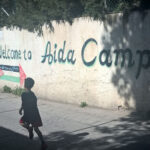
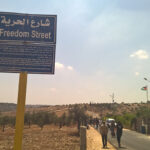
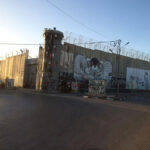
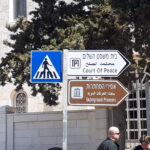
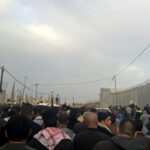
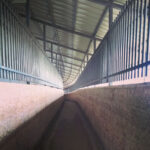
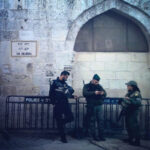
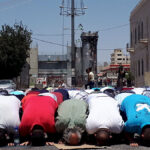
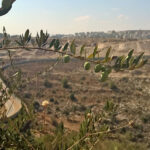
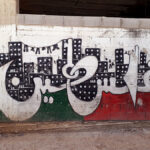
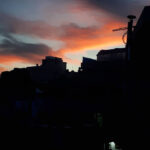
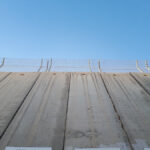
Until one day, a colleague received an angry call from a COGAT spokeswoman. People had been asking her why they kept seeing that sentence in so many of our articles, she screamed. We were the only news outlet who didn’t wait to hear back from them before publishing, she went on to say — an unbelievable claim, given how nakedly they were trying to bury stories with their silence. For how else could we explain their unresponsiveness to us on stories that Israeli media had already reported on?
So we switched tactics: every request for comment included a specific deadline by which we would need a response. COGAT adapted to that too, meeting our questions with requests of their own. Once, we were told that we hadn’t provided them enough information for them to respond to questions about a recently issued demolition order — leaving us to wonder: Exactly how many one-story carpenter workshops owned by an Iyad D. in this specific northern West Bank village of 2,000 inhabitants had received demolition orders that very day for there to be any room for confusion?
We were once told that COGAT couldn’t confirm whether it had detained a Palestinian man, whose full name we had supplied, at the Erez crossing that day unless we supplied them with his ID number — as if we journalists had better access to a Palestinian’s private information than the state that boasts some of the most advanced surveillance technologies on earth.
The same road would be simultaneously open or closed depending on which Israeli governmental body you spoke to or how you phrased your question. Alleged Palestinian attackers would be described as “neutralized” on the scene with no further elaboration — neither living nor dead, like Schrödinger’s cat. (Although, more often than not, they would be dead.)
These anecdotes would be added to our collection of surreal Israeli responses, which we shared amongst ourselves to laugh out of frustration and despair. “Did not respond to a request for comment at the time of publication” became a small act of rebellion amid the Orwellian doublespeak we found ourselves navigating every day.
The truth is, the Israelis weren’t the only ones we had to worry about when doing our jobs. While the news agency I worked at was nominally independent, it wasn’t rare for members of the Palestinian Authority security forces to stop by the office in full uniform for tea. And a simple phone call could suffice for an article to be taken off the website.
The English desk was submitted to a lesser degree of scrutiny than our Arabic-speaking colleagues, but we knew we were also being watched. A Palestine Liberation Organization (PLO) official once called and complained to a hapless colleague that, while the Arabic website read like “it came straight from Mahmoud Abbas’ office” — something, he said, he didn’t agree with — the English site, on the other hand, sounded like the leftist Democratic Front for the Liberation of Palestine (DFLP) opposition party.
We foreign staff laughed it off, wearing this critique as a badge of honor — but we also knew that the Palestinians on our team were bearing the brunt of this pressure.
These regular run-ins we, as foreign journalists, had with various authorities were of course only a small taste of the death by a thousand bureaucratic cuts inflicted on Palestinians. Under the guise of law and order, Israel gaslit the world into believing Palestinians were unreasonable for repeatedly building homes illegally (when 98 percent of their construction permit requests are denied), or for raising entire generations of violent terrorists (tried in military courts with 99.7 percent conviction rates) — a conception of “law and order” that, conveniently, happened to forget about international law as far as Palestinians were concerned.
In light of the past few months, I feel like my time in Palestine was relatively uneventful. Yet a perusal of my notes from the time remind me that I bore witness to the so-called Knife Intifada; the cold-blooded murder of Abd el-Fattah al-Sharif by Elor Azaria in Hebron; a mass prisoner hunger strike; the death of Basel al-Araj; increased settlement construction in the E1 area around East Jerusalem; the surveillance camera crisis at Al-Aqsa; the imprisonment of then-16-year-old Ahed Tamimi; Trump’s recognition of Jerusalem as the Israeli capital, and the opening of the US embassy in Jerusalem; the early weeks of the Great March of Return in Gaza; 10 years of blockade on Gaza; the 30-year anniversary of the First Intifada; 70 years of Nakba.
Beyond these momentous events were the countless daily indignities of life under the occupation that most abroad never hear about: the uprooting of olive trees; the demolition orders that homeowners have to carry out with their own hands to avoid being billed for the Israeli bulldozers tearing down their houses; the confiscation of Palestinian bodies; the army raids, every single night of the year without fail.
Each one a crisis in its own right, most of which barely registered in international consciousness. Each one a crisis, and yet “nothing out of the ordinary.”
Living in the occupied “Which Bank”
I couldn’t escape these uncanny reminders of the occupation anywhere. Every passage at the Ben Gurion airport in Tel Aviv meant thorough questioning to the point of absurdity: Do you work in an open space or do you have your own office? Do you have Palestinian friends? What are their names? Do you live alone? What is your roommate’s name? There’s a Jordanian stamp in your passport from last summer — what was the name of the hostel you stayed at in Amman that one time? What do your parents do for work? Without fail, I would get a sticker with the number 6 affixed to my passport, the highest level security check.
One day, I set out on the 231 bus from Bethlehem to Jerusalem with a Frenchman I was seeing that summer, hoping to spend a weekend together in Haifa. The bus went through the Beit Jala checkpoint, where Palestinians were made to get off the bus to have their IDs checked, while foreigners and the elderly stayed on, an uncomfortable segregation.
Two young Israeli soldiers, no more than 20 years old, climbed aboard, encumbered by their bulky weapons and protective gear in the narrow aisles. One of them took my passport and flipped through until he found my full-page visa.
“What do you do?” he asked me.
Not wanting to volunteer the fact that I was a journalist upfront, I responded: “I work in the West Bank.”
“Which bank?”
I stifled my laughter when I realized he wasn’t joking. It dawned on me: To him, this is Judea and Samaria, and the only bank I could be conceivably speaking of at this moment is a financial institution. Two parallel realities superimposed on top of the same land, colliding in this unbelievable misunderstanding.
Ignoring my explanations and my companion’s very French outrage (“Ouat eef she ‘ad to go to zee embassy?!”), the soldiers said my visa, which I had used countless times to fly into Tel Aviv, did not allow me inside Jerusalem or Israel, and that we had to get off the bus and turn back around.
We decided to try our luck through Checkpoint 300, on the other end of Bethlehem — a commuter’s nightmare for thousands of Palestinian workers at the crack of dawn, its spooky maze of concrete corridors felt like an abandoned slaughterhouse during the day. I took off the jacket that had been covering my tank top and gave the soldiers, all hidden behind plexiglass and two-way mirrors, the best impression of a clueless tourist I could muster. I was let through, free to spend the weekend frolicking by the Mediterranean Sea that many of my Palestinian friends weren’t able to visit for themselves.
The inconsistency I experienced that day from one checkpoint to the next was a key part of the occupation: never knowing when a rule would be waived or strictly applied gave the impression of Israeli leniency, while making sure we always felt uncertain about what our luck would bring that day.
It’s always been a strange experience trying to explain what it was like living in the West Bank. Some people expected me to witness absolute misery and devastation (I think it was a sobering moment for my friends in Lebanon when I told them that, unlike in Beirut, I had 24-hour electricity and solid internet). Others believed I was living in an all-out war zone, and appeared almost disappointed that I couldn’t regale them with stories of dodging bullets or seeing someone die in front of my eyes.
Reality was more complex than that. Bethlehem had plenty of bars and restaurants, and a hotel with a pool where we would spend sunny afternoons eating watermelon and smoking shisha. There were late-night bonfires where someone played the oud. Warm Ramadan nights when the streets would cheerily fill up with families out for some ice cream. Christmas lights on cobblestone streets. Profound friendships and love stories, tedious office drama, nights spent playing cards games like trix or tarneeb. Lemon and askadinya (loquat) trees stretching their branches over onto my balcony as if hand-delivering me fruit while a flock of sheep grazed nearby.
And all of that existed in concert with the apartheid wall. The Israeli military base looming on the edge of the city. Bethlehem’s three refugee camps, Aida, Azza, and Dheisheh, whose residents carry the memories of Jerusalem-area villages destroyed in 1948. The night raids. The tear gas. The checkpoints. The ever-present fear, until this day, for the safety of the people I know.
And so, I learned to live with it. I learned to check the local Facebook pages at the end of the night to see if the army was out or if it was safe to head home. I learned to sit in the front passenger seat because Israeli soldiers were less likely to shoot at a car if they saw a white girl on board. I learned which side streets to escape through when the tear gas on Jerusalem-Hebron Road got too bad. I learned to smile and keep my voice upbeat at checkpoints, and maybe even take off my jacket and show a little cleavage. I learned which people in the community had lost a son or a friend, and whose bodies still carried pieces of shrapnel. I learned the spokespeoples’ phone numbers by heart. I memorized statistics. I eventually had paragraphs of background information on the Gaza blockade, on the Al-Aqsa mosque, on administrative detention, flowing automatically from my fingertips.
Speaking to friends and family back in France or the US, I struggled to convey the reality of what I was witnessing. The sentence “Israeli settlers uproot 300 olive trees” cannot carry in six words the enormity of the loss of each and every tree. I realized how the mention of a Palestinian being imprisoned under administrative detention would trigger some people’s cognitive dissonance — surely these people must have done something wrong, they reasoned, for we cannot conceive of hundreds of people thrown into prison each year without trial or charges. That this specific policy is a remnant of the British Mandate only makes such disbelief that much more ironic.
I thought that I was as prepared as I ever could have been when I first set foot in Palestine, that I knew enough not to be surprised. There are many days when humor helps you cope. And there are days that break you, when the callous, intentional cruelty is too much to bear. This may all become routine, but it never feels normal.
The counter-culture shock
In May 2018, I had to leave. A year earlier, the Palestinian Authority had decided to suspend its collaboration with Israel on West Bank visas, which in effect screwed over countless foreigners, whether married to Palestinians or otherwise working in the West Bank as journalists, NGO workers, etc… Hardly a crushing blow to Israel. The PA’s infamous security coordination with Israel, meanwhile, remained intact.
I had hoped that the situation would have resolved itself by the time my visa was up for renewal, but alas. Things could have been worse — I found a job in the UK that gave me a few months to plan my departure — but I felt crushed. I wasn’t ready to leave a place where I felt such a strong sense of purpose and community.
It was only once I landed in London that I realized just how much those years had affected me. The sound of helicopters above the city would make my shoulders climb up to my ears; I would have olfactory hallucinations, convinced that I was smelling tear gas on the Tube; my nights were filled with dreams about soldiers breaking into my apartment.
The night before my appointment to receive my British National Insurance number, I prepared in case they quizzed me to confirm I did indeed live at the address I had provided: I memorized the names of some neighborhood landmarks, the Tube stop closest to my office, what grocery store was the nearest to my flat.
The government official didn’t even look at my lease. Sitting in a dingily lit Job Center in Slough, I realized it had been unhinged of me to think that British bureaucrats would question me, a white woman, as invasively as Israeli airport security staff — but up until that moment, I hadn’t second-guessed, not even for a minute, whether my efforts were over the top.
I was only in Palestine for two-and-a-half years. I didn’t see war up close. I didn’t lose a loved one. I never truly felt that my life was in danger. And yet, once removed from that environment, I realized how I had contorted myself into twisted shapes to adapt to the routine of the occupation, which were now wholly out of place in a “normal” life. It was as if I had grown gills to breathe underwater, only to now be tossed back ashore, gasping for air like a stranded fish.
If these are the scars the occupation left on me, a bystander, a witness, a person free to leave, then how on earth are Palestinians supposed to feel?
I became a journalist because I wanted to understand how the same story could be told so differently depending on who is recounting it. So long as what I reported was based on fact, I thought it was better for the readers to know where I stood — even if saying it publicly meant risking not being able to return to Palestine again — and take what I wrote with a grain of salt if they deemed it necessary.
And so I never fully bought into this belief that journalists should project the illusion of being objective. Living in Bethlehem, just like living in Tel Aviv, or in Washington, DC, was a fundamentally subjective process rooted in personal experience. To ignore the — objective — imbalance at play, however, and refuse to name out loud the aberrations of the status quo is tantamount to helping uphold them. To maintain pride in detachment, as so many journalists do, is to accept the parameters of “ordinariness” set by the powerful. How have we come to accept the idea that “objectivity” is more important than integrity? That carrying out this work without emotion is laudable?
Losing my mind these past three months feels like the sanest thing I’ve ever done.
The trajectory of my career was set 20 years ago, during the last time millions of people took to the streets across the world to denounce an unjust war. During the last time we saw world powers maintain dishonesty because it suited their interests, and saw the vast majority of legacy journalists report on that dishonesty without question.
For more than 75 years, Israel and its supporters have normalized ethno-religious supremacy. As we witness before our eyes the absurdity of the Israeli occupation reach its abominable paroxysm — thanks to Palestinian journalists risking their lives and the lives of their loved ones to bring us all the reality of the situation on the ground — I pray that this commonplace will never feel ordinary again.



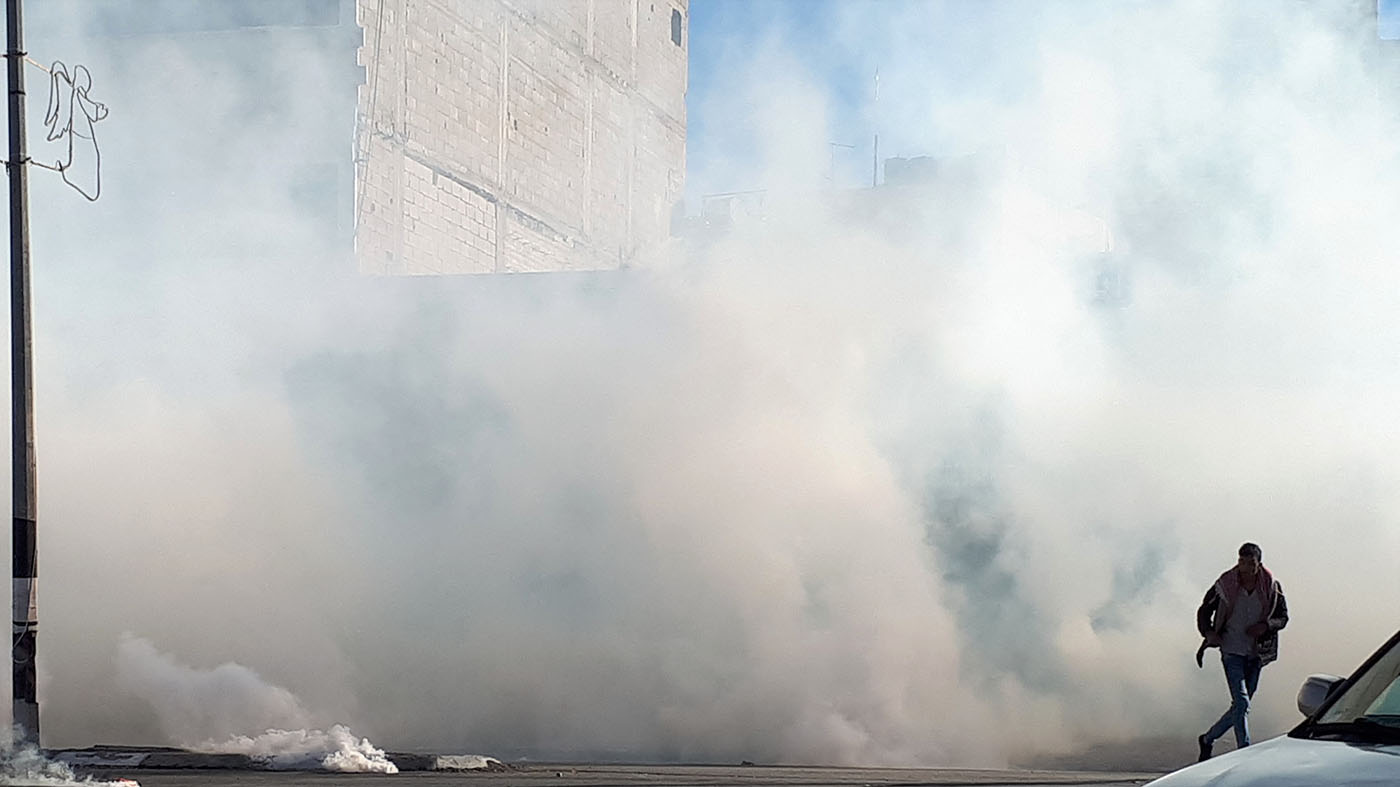

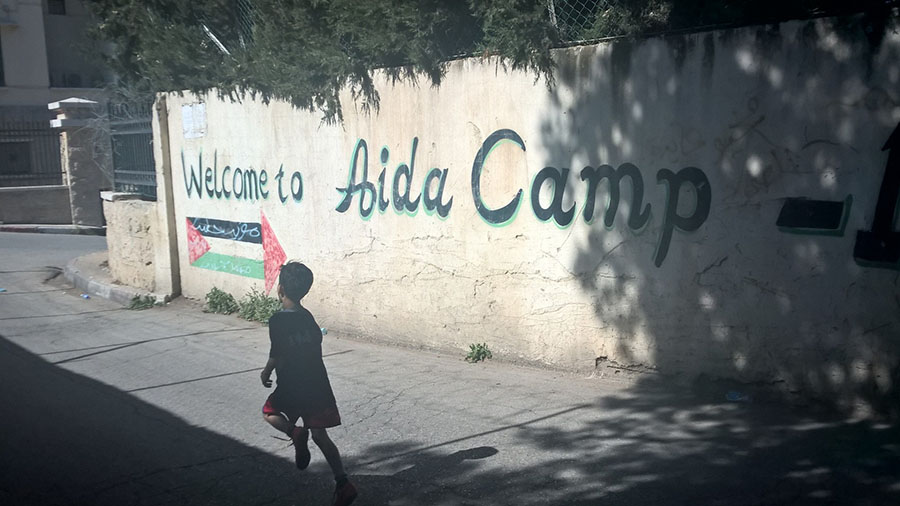
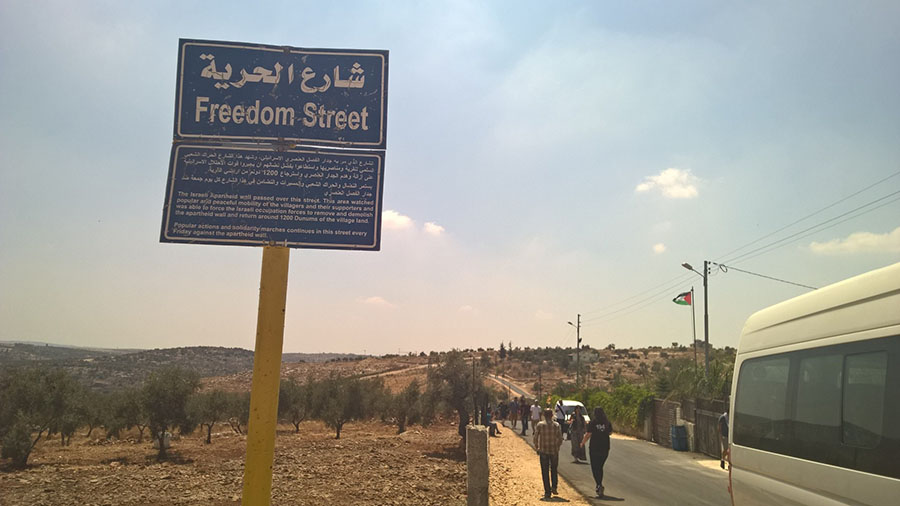
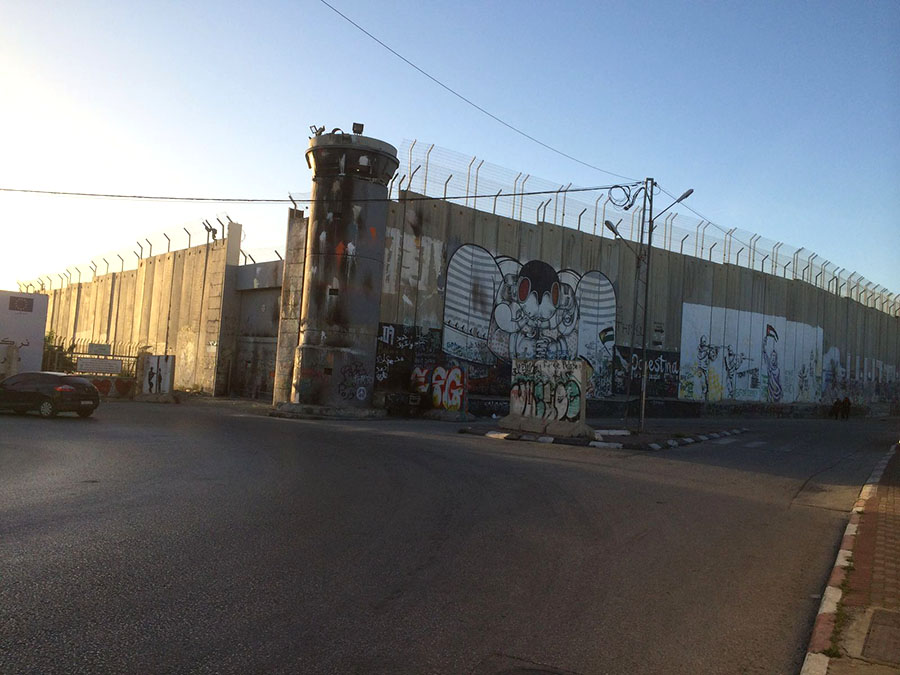
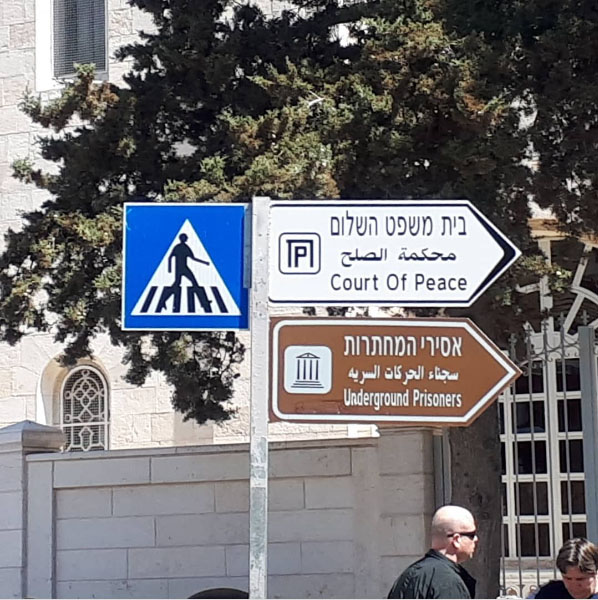
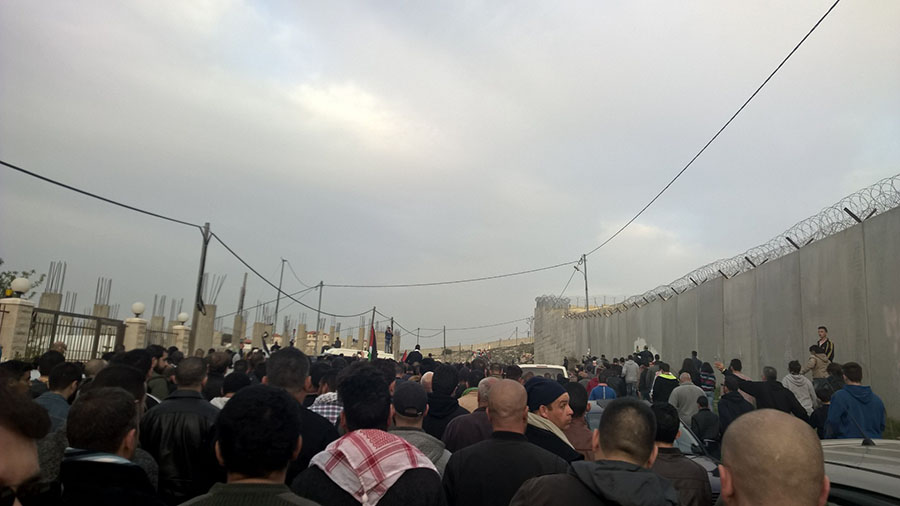
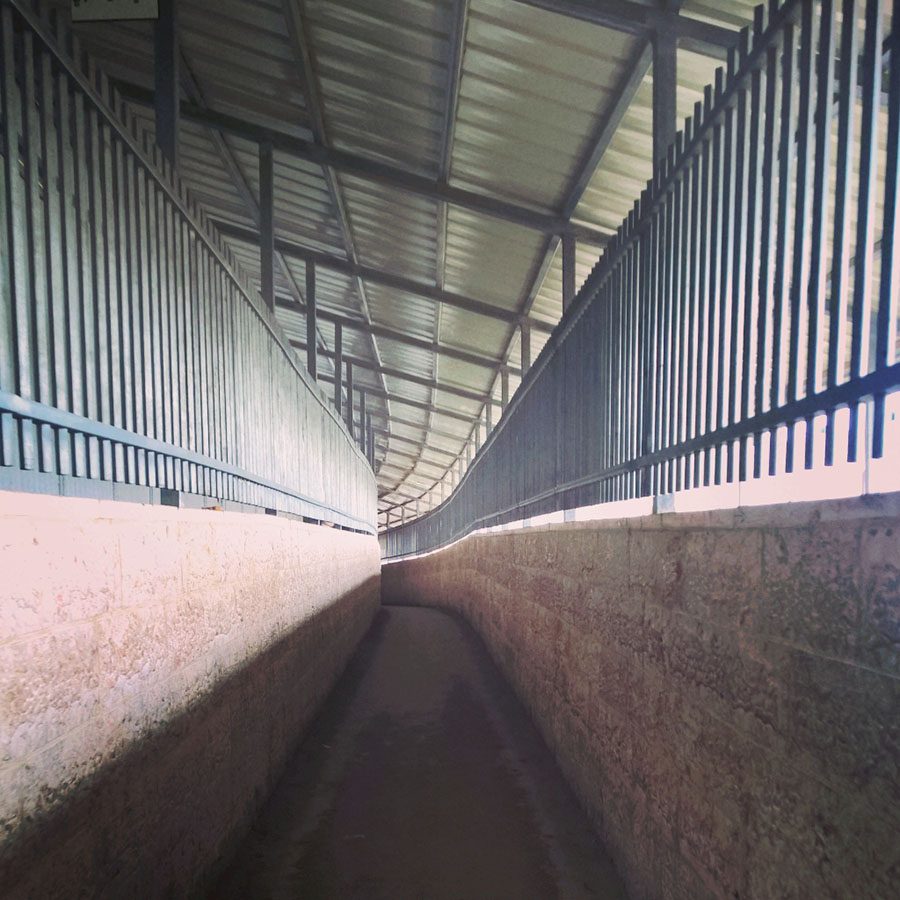
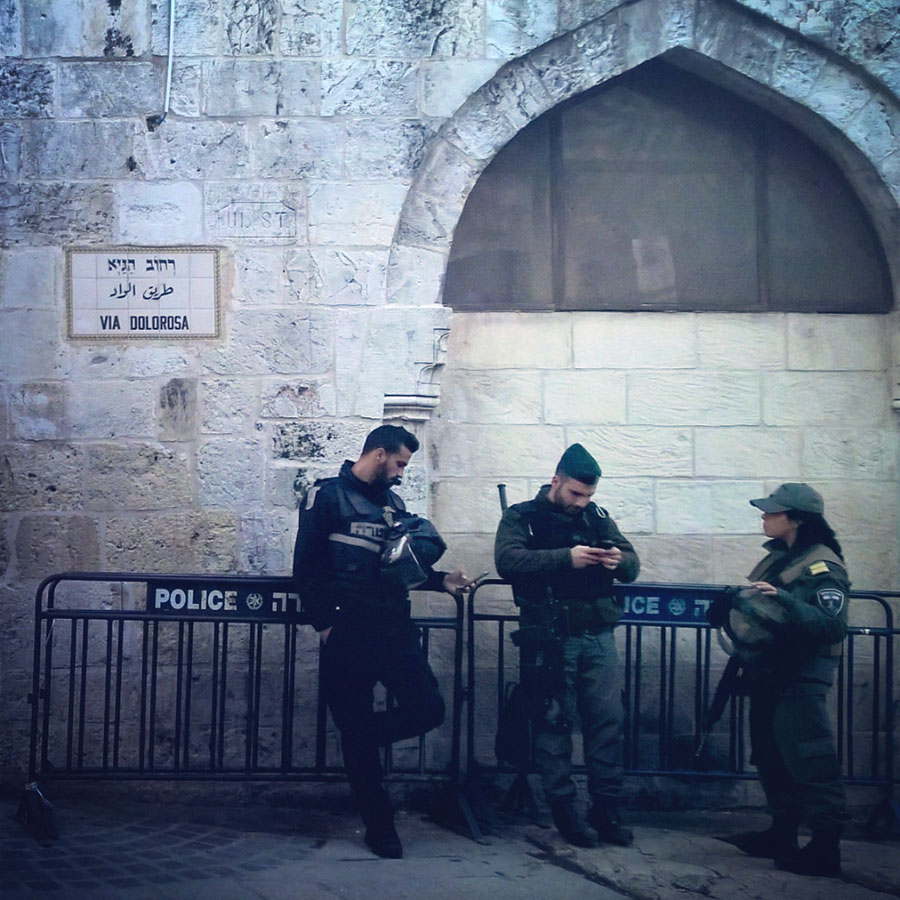
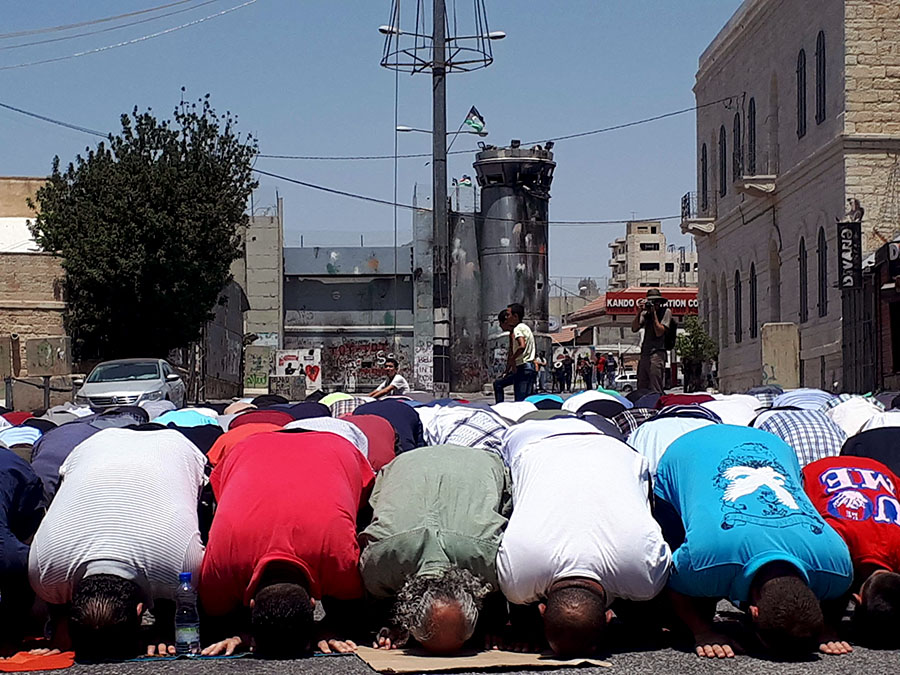
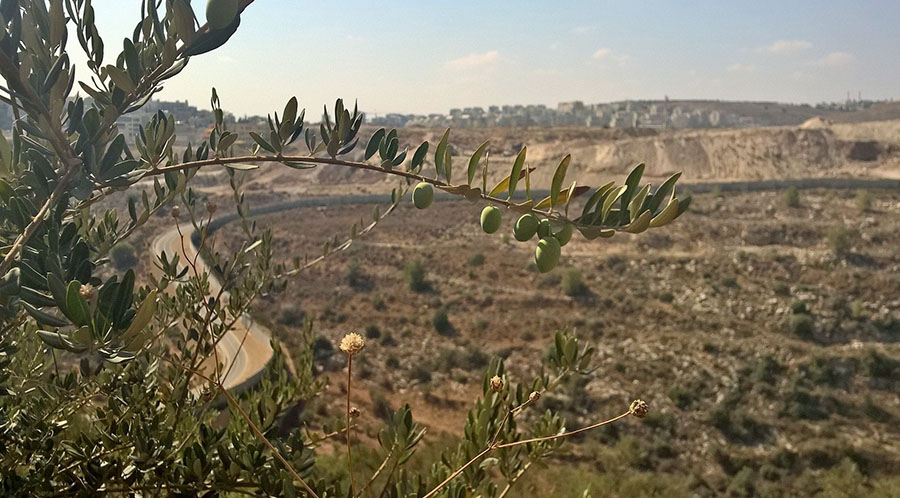
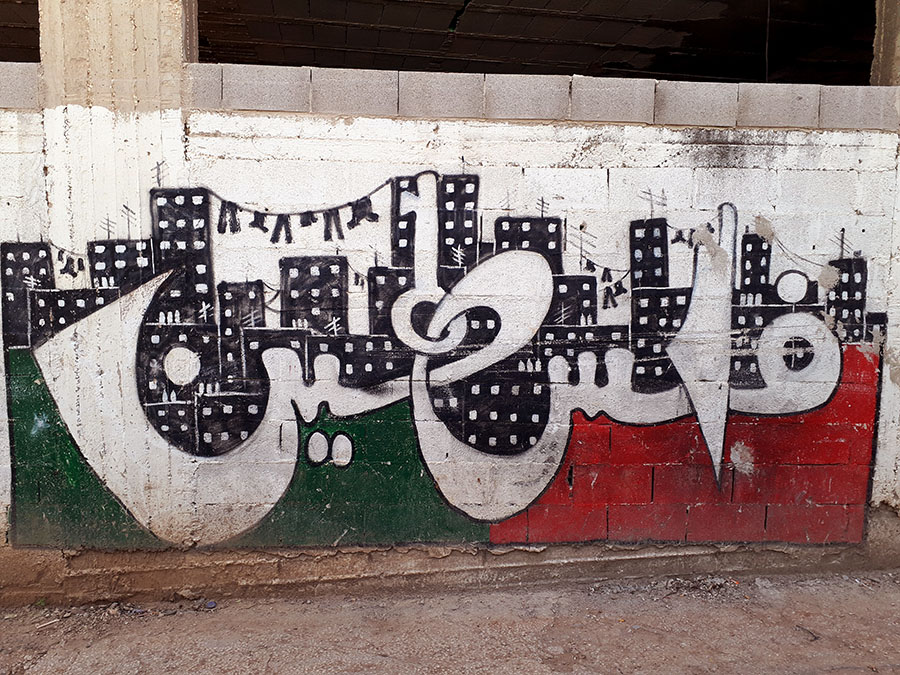
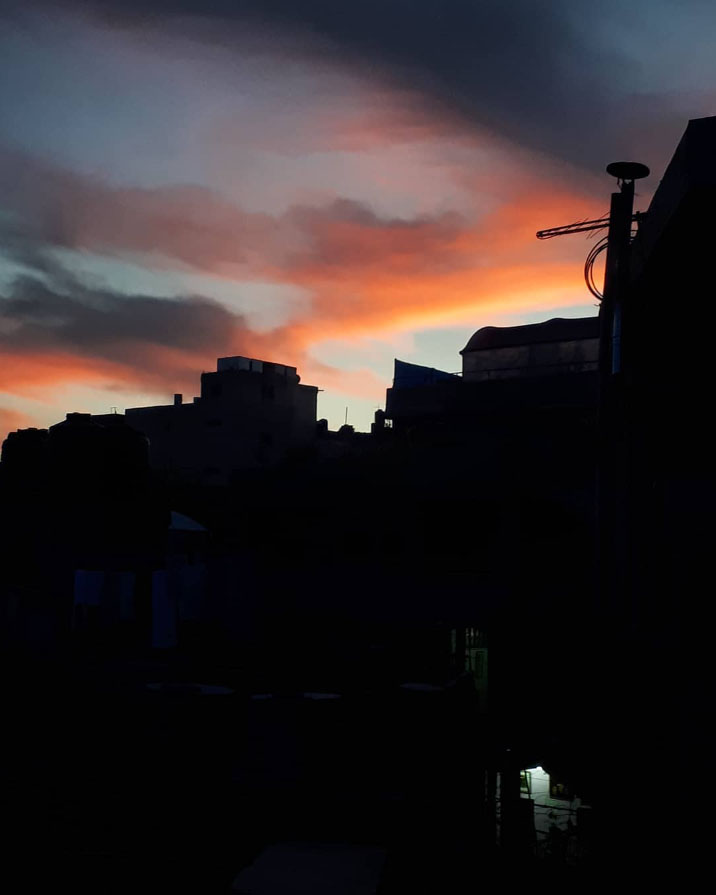
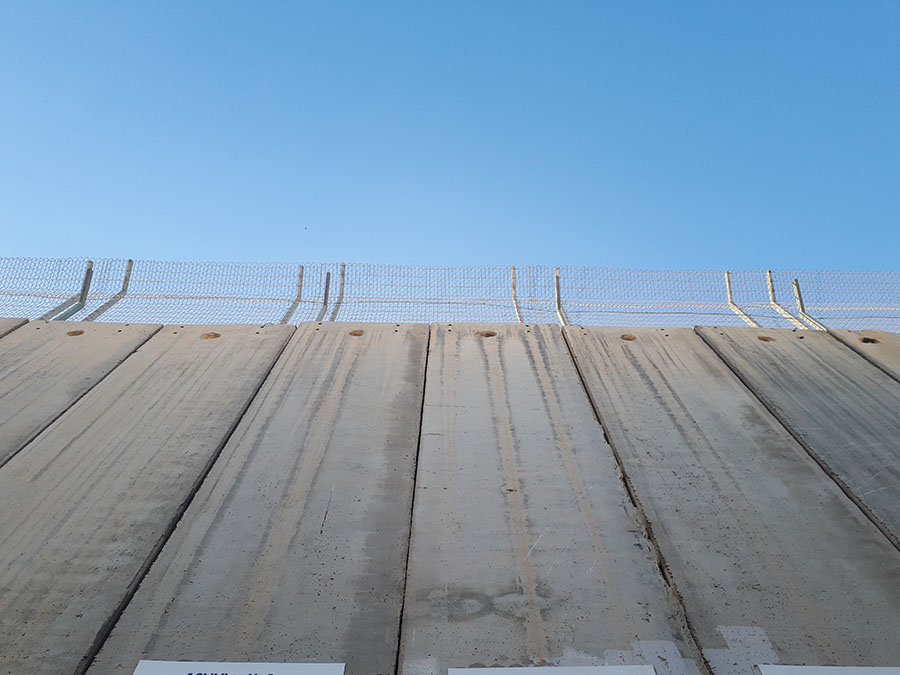
Thank you for writing this, Chloé. It was beautiful, moving, and so true.